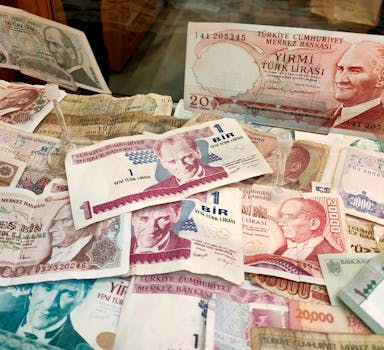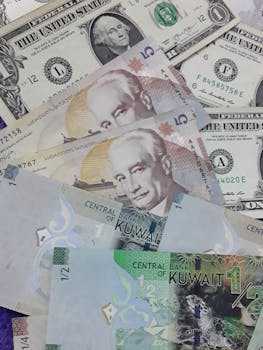
Russia's War Chest Shrinks: $50 Billion in Assets Seized Amidst Crumbling Economy
The ongoing war in Ukraine has dealt a significant blow to the Russian economy, forcing the Kremlin to grapple with unprecedented financial strain. Recent reports suggest that approximately $50 billion in Russian assets have been seized globally, exacerbating the existing economic pressures stemming from international sanctions and the war's escalating costs. This seizure of assets represents a major development in the ongoing economic warfare between Russia and the West, significantly impacting Russia's financial stability and its ability to fund the war effort.
The Impact of Sanctions and Asset Seizures on Russia
The West's response to Russia's invasion of Ukraine has been swift and decisive, primarily centered around crippling economic sanctions designed to isolate Russia from the global financial system. These sanctions, coupled with the freezing and seizure of Russian assets, have severely restricted Russia's access to international markets and capital. This has resulted in:
- Reduced access to foreign currency: The sanctions have severely hampered Russia's ability to convert rubles into foreign currencies, impacting its ability to import essential goods and services.
- Increased inflation: The limitations on imports and the disruption of supply chains have contributed to a surge in inflation, further eroding the purchasing power of Russian citizens.
- Capital flight: Wealthy Russians have moved billions of dollars out of the country, further depleting Russia's financial reserves.
- Weakening Ruble: The Russian ruble has experienced significant volatility and devaluation against major currencies, impacting international trade and investment.
$50 Billion and Counting: A Breakdown of Seized Assets
The $50 billion figure represents a significant portion of Russia's readily accessible foreign assets. This figure includes:
- Frozen Central Bank reserves: A substantial portion of the seized assets comprises reserves held by the Central Bank of Russia in foreign banks. These reserves were intended to act as a buffer against economic shocks but have become a target of sanctions.
- Oligarch assets: Western governments have targeted assets owned by wealthy Russian oligarchs believed to be close to Vladimir Putin. This includes yachts, real estate, and financial holdings in various countries. These seizures are not only aimed at punishing individuals but also at pressuring the Kremlin to end the war.
- Corporate assets: Sanctions have also affected Russian corporations, leading to the freezing and seizure of assets held in foreign jurisdictions.
The Legal and Political Landscape of Asset Seizures
The legal basis for seizing these assets varies depending on the jurisdiction. While some seizures are directly linked to sanctions imposed by specific countries, others are based on broader principles of international law, such as the prevention of money laundering and the prosecution of war crimes. The process is complex and involves international cooperation among law enforcement agencies and judicial authorities.
The political implications of these seizures are also significant. The actions demonstrate the West's determination to hold Russia accountable for its actions in Ukraine and underscore the growing economic warfare dimension of the conflict. Russia, on the other hand, has denounced the seizures as illegal and has threatened retaliation.
Russia's Economic Countermeasures and Strategies
Faced with these unprecedented economic pressures, Russia has implemented a range of countermeasures, including:
- Increased domestic production: The Kremlin is pushing for greater self-sufficiency and reduced reliance on imports by boosting domestic production of essential goods. However, this strategy faces challenges due to technological limitations and a lack of access to foreign expertise.
- Strengthening ties with non-Western countries: Russia is attempting to diversify its economic relationships by strengthening trade and investment ties with countries such as China and India. While these relationships offer some relief, they are unlikely to fully compensate for the loss of Western markets.
- Currency controls: Russia has implemented capital controls to try and stabilize the ruble and prevent further capital flight. These controls, however, stifle economic activity and limit investment.
- Increased borrowing from allies: Russia has sought to increase its borrowing from countries like China. However, the terms are often unfavorable, highlighting the country's weakening economic position.
The Long-Term Implications for the Russian Economy
The long-term consequences of the sanctions and asset seizures on the Russian economy remain uncertain. While Russia's economy has shown some resilience, the combined impact of the sanctions, the war effort, and the loss of access to global markets poses a serious threat to its long-term stability and growth. The extent to which Russia can successfully adapt and diversify its economy will significantly shape its future economic trajectory. The ongoing conflict and uncertainty about future actions from Western governments represent significant variables in this equation.
Global Economic Fallout: Ripple Effects Beyond Russia
The economic fallout from the war in Ukraine extends far beyond Russia's borders. The conflict has disrupted global supply chains, leading to increased inflation and energy price volatility worldwide. The sanctions on Russia have also created uncertainty in global markets and impacted investor confidence. The ongoing situation underscores the interconnectedness of the global economy and the far-reaching consequences of geopolitical instability. The long-term implications for global economic growth and stability remain a significant concern for policymakers and economists. The situation calls for robust international cooperation to mitigate potential risks and ensure a stable global economic environment.
In conclusion, the seizure of approximately $50 billion in Russian assets represents a pivotal moment in the ongoing economic war surrounding the invasion of Ukraine. This development, alongside existing sanctions, continues to place immense pressure on the Russian economy, impacting its ability to fund the war and its long-term economic viability. The ripple effects of this conflict are felt globally, highlighting the interconnectedness of the world's economic systems and the complex challenges of navigating geopolitical crises. The coming months and years will be critical in determining the long-term consequences of this conflict and the future trajectory of the Russian economy.




















